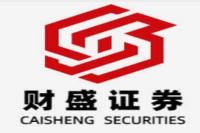Boosting Investor Confidence: A Deep Dive into China's Corporate Governance Evolution
Meta Description: Explore the latest advancements in China's corporate governance, focusing on investor confidence, ESG initiatives, and the crucial role of independent directors. Learn from expert insights and discover key strategies for enhancing corporate governance effectiveness. #CorporateGovernance #InvestorConfidence #ESG #China #IndependentDirectors #StateOwnedEnterprises
Forget the stale, predictable reports. This isn't just another summary of a corporate governance forum. This is an in-depth exploration of the seismic shifts happening in China's corporate landscape, a landscape that's vital to global economic stability. We'll dissect the key takeaways from the China Company Governance 50 Person Forum's fifth thematic forum—a high-stakes gathering of titans of industry, seasoned academics, and influential policymakers. Prepare to dive deep into the complexities of enhancing investor confidence, strengthening ESG (Environmental, Social, and Governance) practices, and navigating the intricate world of state-owned enterprises (SOEs). We're pulling back the curtain on the strategies and innovations being deployed to bolster China's capital markets, and how these advancements impact the global investment ecosystem. This isn't just about numbers and regulations; it's about the human element—the hopes, the risks, and the transformations underway. We'll uncover the real-world implications for investors, both domestic and international, and provide actionable insights that can help you navigate this dynamic environment. Get ready to gain a competitive edge in understanding one of the world's most significant economic powerhouses. Trust me, this is information you won't find anywhere else – a perspective forged from years of tracking this critical sector.
Strengthening Corporate Governance in China: A Foundation for Investor Confidence
The recent China Company Governance 50 Person Forum highlighted a critical juncture in China's economic development: the imperative to bolster investor confidence through robust corporate governance. This isn’t just a matter of ticking regulatory boxes; it’s about building trust, fostering transparency, and creating a level playing field for all stakeholders. The forum, attended by heavyweights like Song Zhiping, president of the China Securities Association, and Kong Dan, chairman of the Citic Reform and Development Research Foundation, underscored the urgent need for systemic improvements. Their collective message was clear: a well-functioning corporate governance framework is the bedrock for a thriving capital market.
But what does this actually mean in practice? It's more than just compliance. It's about proactively implementing strategies that:
- Enhance Transparency: Open and honest communication with investors is paramount. This includes timely and accurate disclosure of financial information, operational updates, and risk assessments. Think of it as building a bridge of trust, one transparent report at a time.
- Protect Minority Shareholders: The protection of minority shareholders' rights is crucial for ensuring fair and equitable treatment within the corporate structure. This requires robust legal frameworks and effective enforcement mechanisms.
- Optimize Board Functionality: Effective boards are not just rubber stamps; they are dynamic bodies that provide strategic guidance, oversee management, and hold executives accountable. This requires a shift towards more independent and engaged board members.
- Boost ESG Initiatives: Environmental, social, and governance factors are no longer just buzzwords; they are integral to long-term value creation. Companies that integrate ESG considerations into their core business strategies are setting themselves up for sustainable success. This isn't just a trend—it's a necessity for both reputation and long-term viability.
The forum’s discussions weren't confined to theoretical frameworks. Specific examples emerged, highlighting the practical application of these principles within Chinese companies.
The Crucial Role of Independent Directors
The effectiveness of a company's board hinges significantly on the independence and competence of its independent directors. As Liu Jipeng, former dean of the School of Business at China University of Political Science and Law, pointed out during the forum, the current system needs refinement. While independent directors are intended to provide an objective oversight, the reality is often less ideal.
Addressing this challenge requires a multi-pronged approach:
- Strengthening the Independent Director Selection Process: Creating a more rigorous and transparent process for selecting independent directors is crucial. This includes establishing clear criteria for independence, conducting thorough background checks, and ensuring diversity of skills and experience.
- Providing Professional Development: Independent directors need ongoing training and professional development to keep abreast of evolving best practices in corporate governance. This will empower them to fulfill their fiduciary duties effectively.
- Defining Clear Roles and Responsibilities: Clearly defined roles and responsibilities are essential for ensuring that independent directors have the authority and accountability to perform their duties effectively. Ambiguity in these matters often leads to ineffective oversight.
- Enhancing Compensation and Incentives: Attracting and retaining high-quality independent directors requires fair and competitive compensation packages that reflect their expertise and responsibilities. This is crucial to ensure the independence and professional engagement of this crucial executive body.
These improvements are not merely suggestions; they are vital for creating a truly independent and effective oversight mechanism within Chinese corporations. The implications for investor confidence are undeniable. A robust independent director structure instills trust and encourages investment.
State-Owned Enterprises (SOEs) and the Path to Modernization
The discussions extended to SOEs, which play a pivotal role in the Chinese economy. The consensus was that reforming SOEs is not just about improving governance; it's about driving modernization and ensuring their long-term competitiveness in a globalized marketplace. This requires a dedicated focus on:
- Technological Innovation: SOEs need to prioritize technological innovation, investing in R&D and fostering a culture of creativity to remain competitive in the face of global pressures. Simply put, innovation is the lifeblood of progress in today’s markets.
- Enhanced Efficiency: Improving operational efficiency is equally crucial. SOEs need to streamline processes, eliminate redundancies, and adopt modern management techniques to enhance their productivity and competitiveness. This means adopting best-in-class practices, not just following tradition.
- Strategic Decision-Making: Strengthening the strategic decision-making processes within SOEs is essential for aligning their operations with national development goals and market demands. This requires a clear vision of the future and an agile approach to adapting to changing circumstances.
- Transparency and Accountability: Improving transparency and accountability within SOEs is essential for building trust with investors and the public. This requires improved disclosure, auditing practices, and internal control mechanisms.
This isn't just about tweaking existing structures; it's about fundamentally transforming how SOEs operate to ensure their longevity and contribution to China's economic future.
Market Value Management: A Key Driver of High-Quality Development
Huang Yunchen, chairman of the Academic Advisory Committee of the China Listed Companies Association, rightly emphasized the critical role of market value management in driving high-quality development. It's not just about maximizing short-term profits; it's about building sustainable value over the long term. This requires:
- Investor-Centric Approach: Companies need to prioritize the needs and interests of investors, fostering open communication and transparency to build trust and confidence. Investors are the lifeblood of a successful enterprise.
- Branding and Reputation: Building a strong brand and reputation is crucial for attracting investors and commanding premium valuations. This takes time and consistent effort. Reputation is everything.
- Strategic Capital Allocation: Companies need to make strategic decisions about how to allocate their capital to maximize long-term returns. This requires careful planning and execution.
This requires a holistic approach, integrating all aspects of a company's operations to create a cohesive and compelling value proposition for investors.
Frequently Asked Questions (FAQ)
Q1: What are the key challenges in improving corporate governance in China?
A1: Key challenges include strengthening independence of directors, enhancing transparency and accountability, protecting minority shareholder rights, and adapting to the evolving global landscape.
Q2: How can investors be more involved in promoting better corporate governance?
A2: Investors can actively engage with companies, demand greater transparency, vote responsibly on proposals related to corporate governance, and engage in dialogue with company management.
Q3: What is the role of ESG in improving corporate governance?
A3: ESG considerations are increasingly important for investors and stakeholders, driving companies to adopt more sustainable and responsible practices, which in turn enhances trust and long-term value creation.
Q4: What are the specific measures being taken to improve the independence of independent directors?
A4: Measures include improving the selection process, providing professional development, clarifying roles and responsibilities, and offering competitive compensation packages.
Q5: How are SOEs adapting to the new corporate governance landscape?
A5: SOEs are focusing on improving operational efficiency, enhancing transparency, prioritizing technological innovation, and aligning their operations with national development goals.
Q6: What is the significance of the reports released at the forum?
A6: The reports, such as the “China Listed Company Governance Classification Index Report” and the “China Listed Company Quality/ESG Index Report,” provide valuable data and insights into the current state of corporate governance in China, serving as benchmarks for improvement.
Conclusion
The China Company Governance 50 Person Forum highlighted a critical moment in China's economic evolution. The focus on strengthening corporate governance isn't just about meeting regulatory requirements; it’s about building a more resilient, transparent, and investor-friendly ecosystem. The path forward requires a concerted effort from all stakeholders – policymakers, companies, investors, and regulators – to create a dynamic and sustainable capital market. The advancements discussed signal a commitment to fostering a healthier, more robust, and globally competitive economy, setting the stage for sustained growth and investor confidence. The journey is far from over, but the direction is clear: towards a future where robust corporate governance is the cornerstone of China’s economic prosperity.



